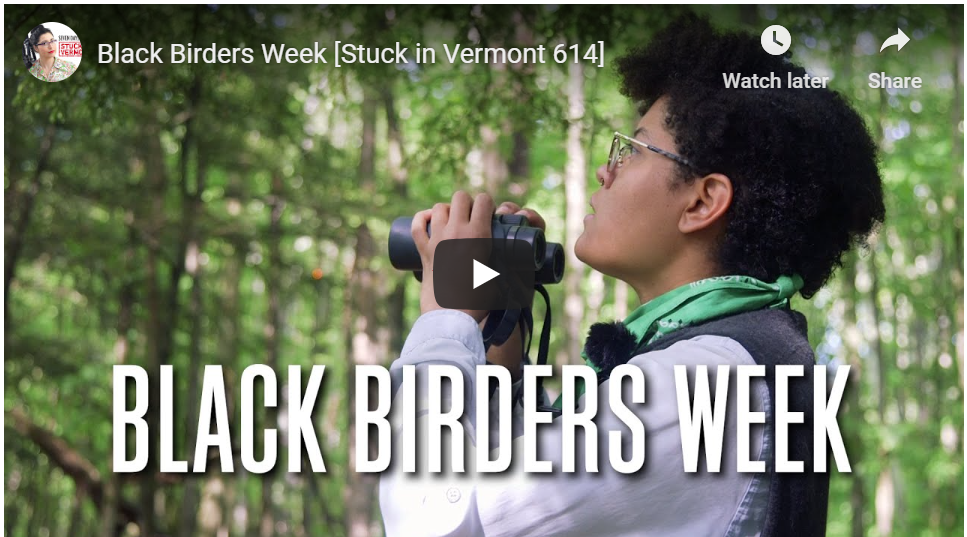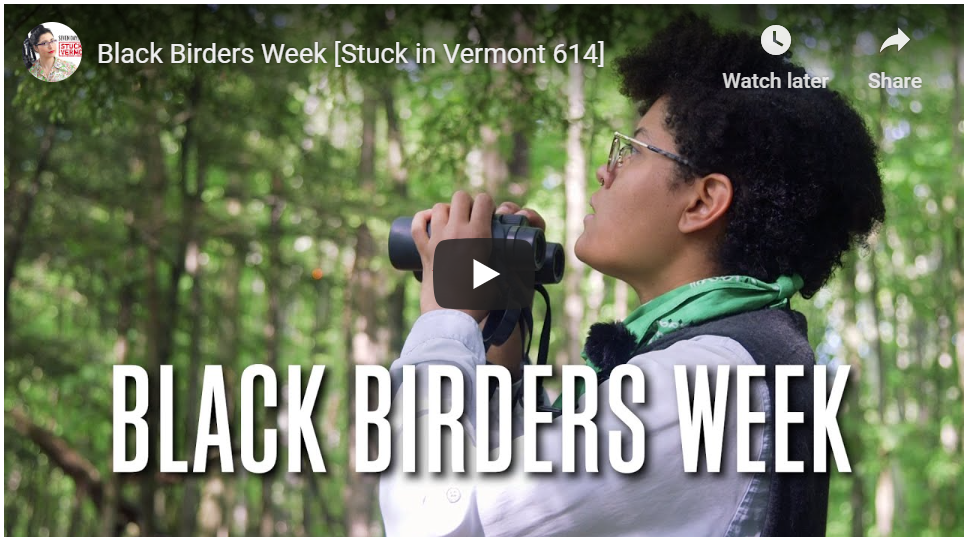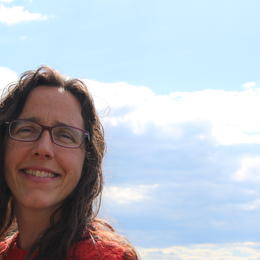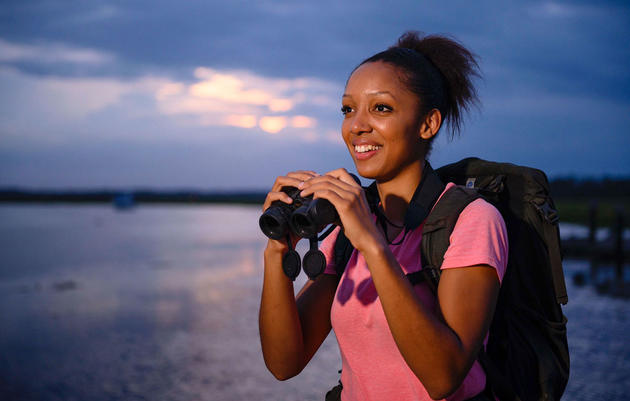A huge thank you to Eva Sollberger and Seven Days for uplifting the voices of Audubon's Debbie Archer and Tykee James as part of the Black Birders Week movement and highlighting "the connection between racial justice and environmental progress and the importance of visibility, representation and hiring people of color in the fields of natural sciences."
A video introduction from Eva Sollberger:
Last week was the first-ever Black Birders Week. Five days of virtual events and activities were organized by a group of Black STEM professionals and students who post online as #BlackAFinSTEM. Initially inspired by the racist incident in Central Park that involved Christian Cooper, a Black birder, the group hopes to raise visibility and connect bird lovers. Across the country, protests in support of Black Lives Matter are fighting against racism and police brutality. Online, birders are sharing their experiences about being #BlackinNature and highlighting the work of Black scientists, nature lovers and academics.
Debbie Archer is the coordinator of the education program at Audubon Vermont, and she has been birding for a decade. Eva met Debbie at the Green Mountain Audubon Center in Huntington to go on an early morning bird walk. They encountered a veery and a yellow-bellied sapsucker and talked about the experience of #BirdingWhileBlack. Eva also spoke via Zoom to Tykee James, one of the co-organizers of the event who is also a birder, a podcast host and a coordinator of government affairs for the National Audubon Society. Tykee spoke about the connection between racial justice and environmental progress and the importance of visibility, representation and hiring people of color in the fields of natural sciences. Filming birds is not Eva’s forte so many thanks to Vermont photographer Peter Riley for sharing some of his wonderful bird photos with us for this video.
Stuck in Vermont: Birding With Debbie Archer of Audubon Vermont During Black Birders Week
Audubon Vermont's Debbie Archer reflects upon #BlackBirdersWeek:
Last Thursday, in the midst of #BlackBirdersWeek I had the opportunity to spend the morning birding with Eva Sollberger at the Green Mountain Audubon Center. As we hiked around the arboretum and up the warbler trail, I got to tell my story as a Black woman who birds and point out some of the species that call the Audubon Center home.
Ironically, I (and many of my coworkers) am quick to say that I am not a birder. You say “birder” and it conjures up images of someone who knows every song and wakes up early-- regularly throughout the year--to go find as many birds as they can. Or you imagine a wealthy white man flying across the country just to see a rare bird, blown off course. Or you imagine an elderly person who birds because they are no longer able to hike/walk/run/bike. But when Eva asked me how long I had been birding and I was able to say “a decade” it shocked even me.
That is the beauty of #BlackBirdersWeek, a week of social media events organized by a group of Black folks in the STEM community who saw themselves reflected in the video of Christian Cooper being attacked (because that is what the threat of violence is) while birding in Central Park. Not only did this week highlight the stereotype of birders we all have, but it also gave voice for folks to say, “Hey, I am a birder too, just like all of these other folks.” You don’t need to know every call you hear to be a birder. You don’t need to keep a life list or be a morning person. But also, those few people that spent their life hoping to see one bird, or earned their PhD studying avian physiology, could be Black!
Birds are not for people, they live--and in some cases thrive--in spite of us. As we have all been in lockdown mode, I have loved the texts, calls, and letters I have gotten from friends and family about the birds they are seeing, many for the first time. They have also been asking what they can do for the birds, taking conservation actions to benefit something they might have otherwise ignored.
What I have been reflecting on is that some people look at me with that same new lens. I might be the first Black person they've seen birding. What I hope is that they too take this moment to learn, to reflect, and to ask “What can I do?”
A message from the collective of Black folks in STEM (@BlackAFinSTEM) who launched Black Birders Week about what you can do:
Whilst it may be the end of #BlackBirdersWeek it is not the end of our movement for better diversity and representation in the outdoors and across STEM fields.
We urge you to continue the conversation, speak up when you hear something that needs to be challenged, take real, palpable action for change and most importantly, support Black scientists, business and media so that we may change the world, not just STEM. The time for action is now, it is our hope that the political pressure brought on by the protests since the deaths of Ahmaud Arbery, George Floyd and Breyonna Taylor, and the conversations we have had here with you, have stoked a fire that will not go out anytime soon and allow us to bring real change to Black communities everywhere both inside and outside of STEM.







